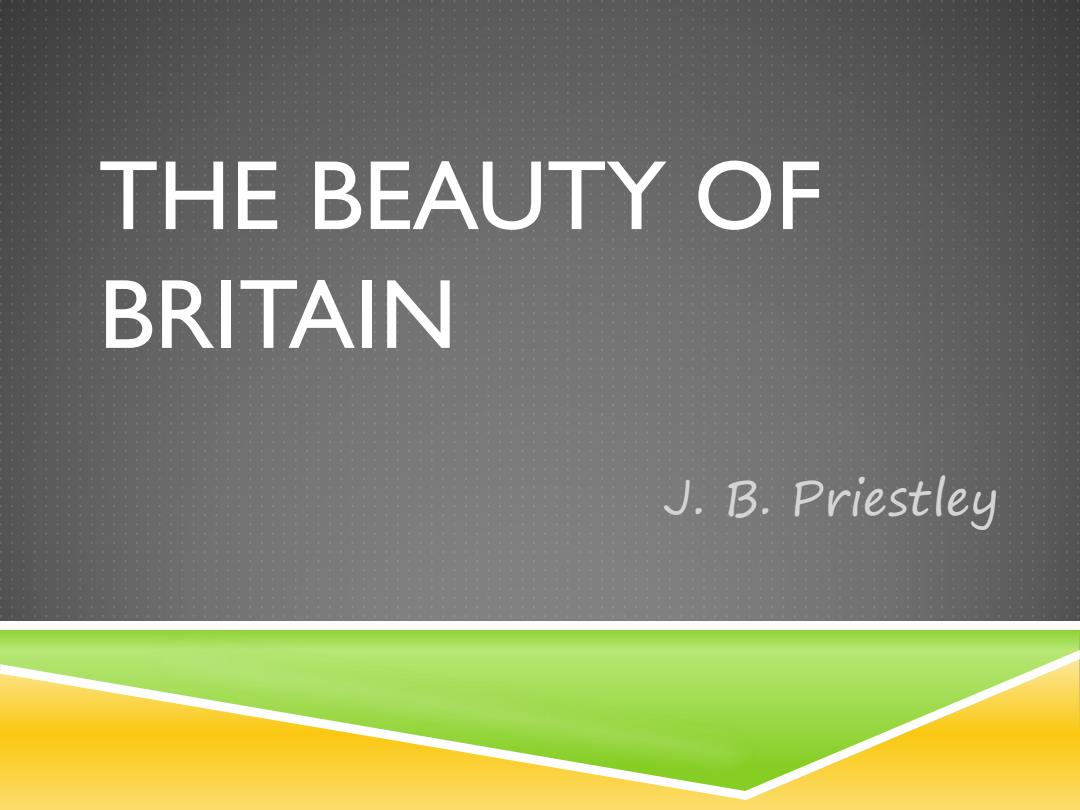
THE BEAUTY OF BRITAIN J.B.Priestley
THE BEAUTY OF BRITAIN J. B. Priestley
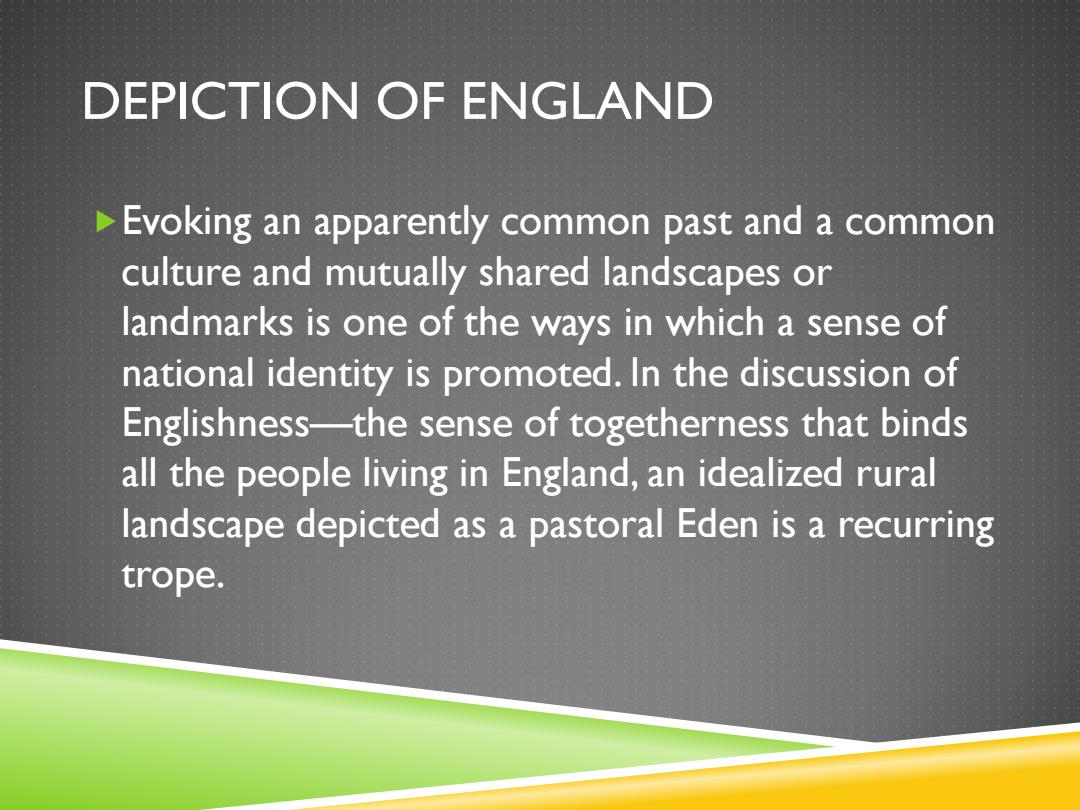
DEPICTION OF ENGLAND Evoking an apparently common past and a common culture and mutually shared landscapes or landmarks is one of the ways in which a sense of national identity is promoted.In the discussion of Englishness-the sense of togetherness that binds all the people living in England,an idealized rural landscape depicted as a pastoral Eden is a recurring trope
DEPICTION OF ENGLAND Evoking an apparently common past and a common culture and mutually shared landscapes or landmarks is one of the ways in which a sense of national identity is promoted. In the discussion of Englishness—the sense of togetherness that binds all the people living in England, an idealized rural landscape depicted as a pastoral Eden is a recurring trope
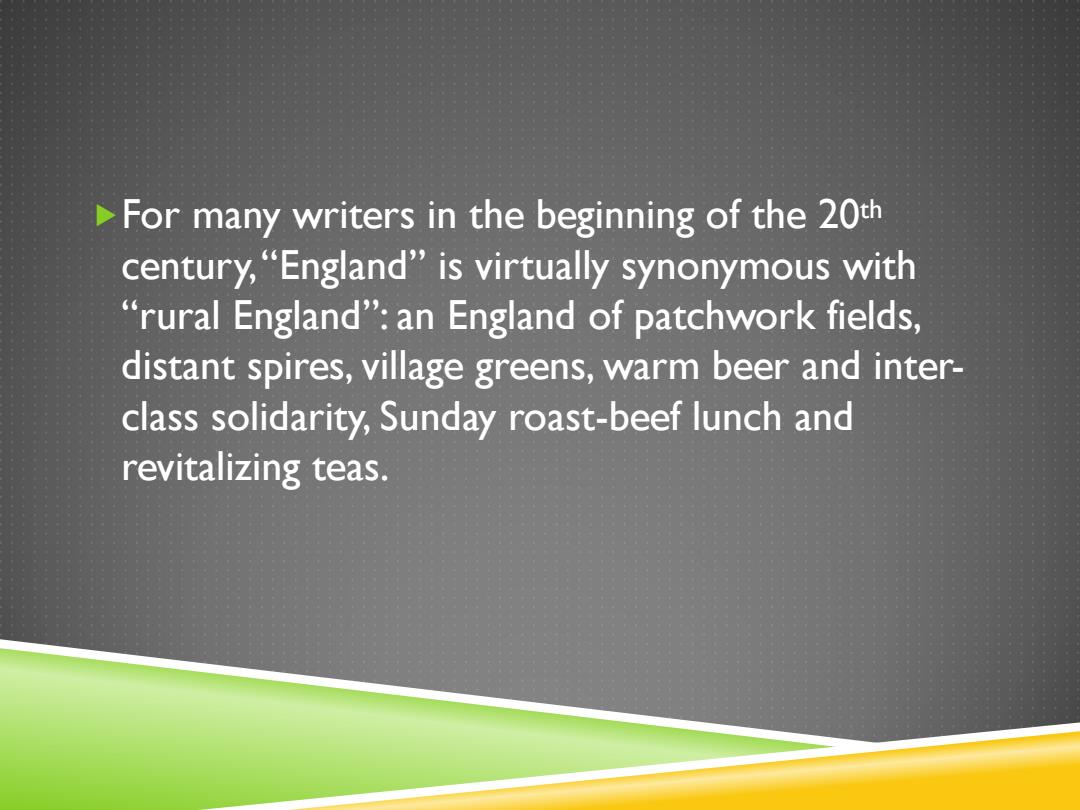
For many writers in the beginning of the 20th century,"England"is virtually synonymous with "rural England":an England of patchwork fields, distant spires,village greens,warm beer and inter- class solidarity,Sunday roast-beef lunch and revitalizing teas
For many writers in the beginning of the 20 th century, “England” is virtually synonymous with “rural England”: an England of patchwork fields, distant spires, village greens, warm beer and inter- class solidarity, Sunday roast-beef lunch and revitalizing teas
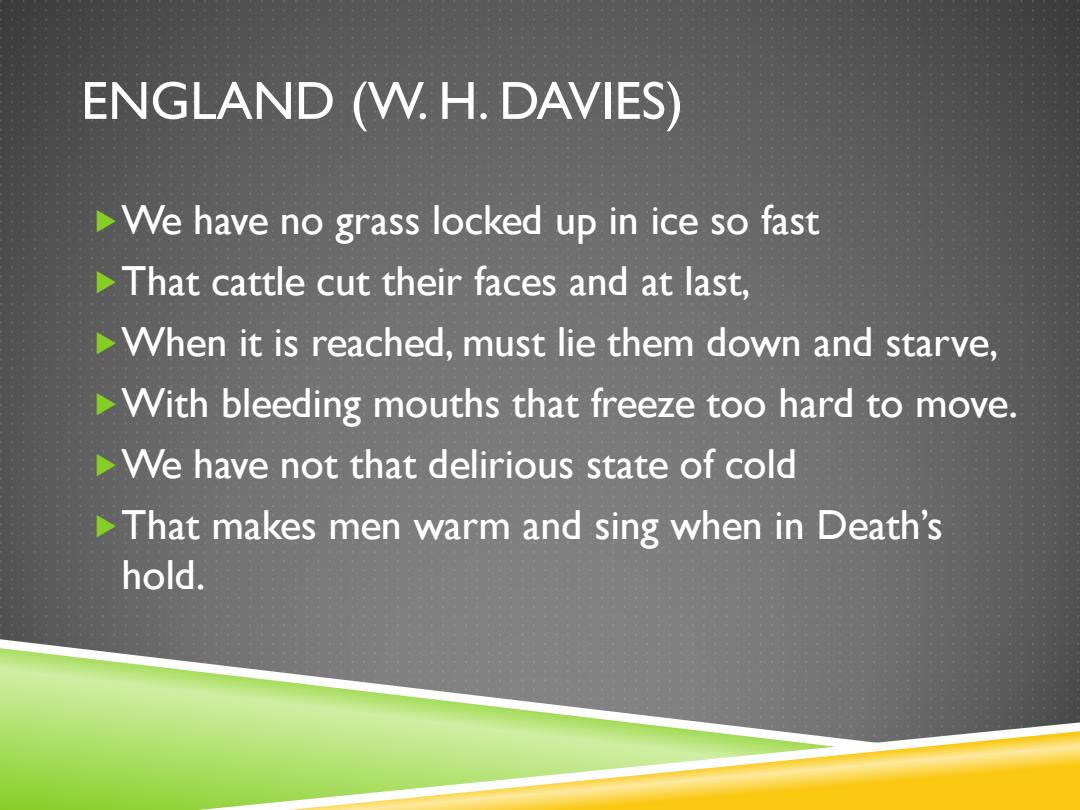
ENGLAND (W.H.DAVIES) We have no grass locked up in ice so fast That cattle cut their faces and at last, When it is reached,must lie them down and starve, With bleeding mouths that freeze too hard to move. We have not that delirious state of cold That makes men warm and sing when in Death's hold
ENGLAND (W. H. DAVIES) We have no grass locked up in ice so fast That cattle cut their faces and at last, When it is reached, must lie them down and starve, With bleeding mouths that freeze too hard to move. We have not that delirious state of cold That makes men warm and sing when in Death’s hold
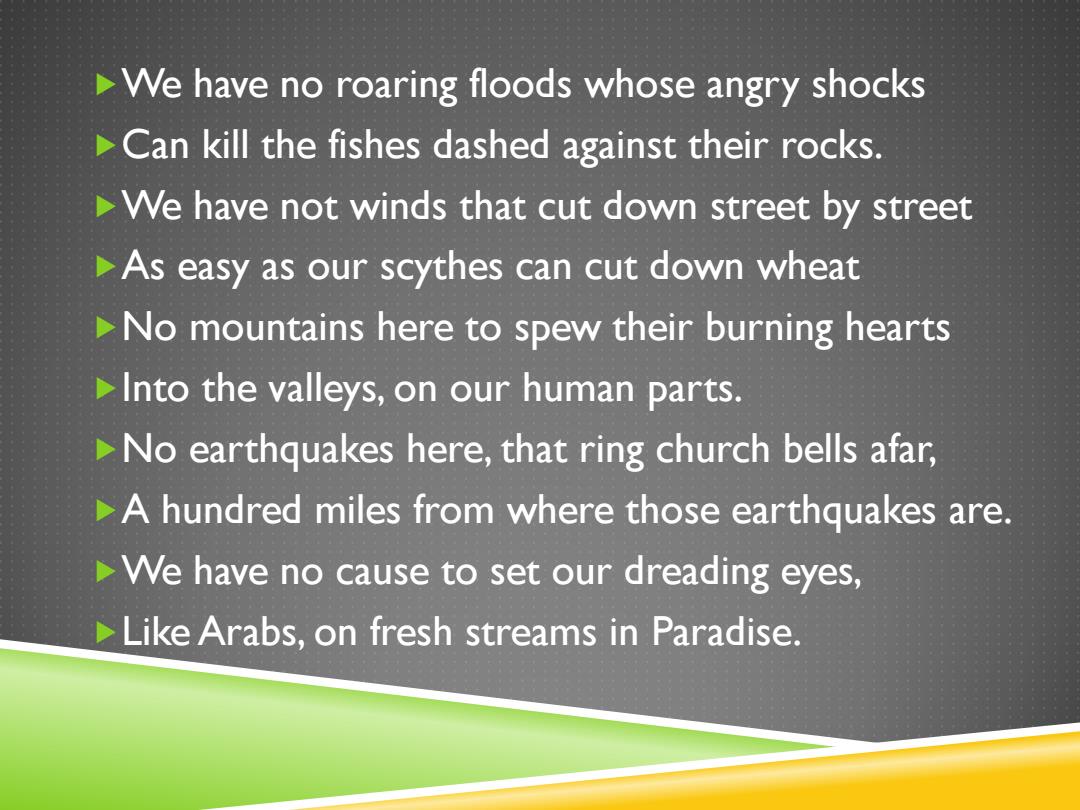
We have no roaring floods whose angry shocks Can kill the fishes dashed against their rocks. We have not winds that cut down street by street As easy as our scythes can cut down wheat No mountains here to spew their burning hearts Into the valleys,on our human parts. No earthquakes here,that ring church bells afar, A hundred miles from where those earthquakes are. We have no cause to set our dreading eyes, Like Arabs,on fresh streams in Paradise
We have no roaring floods whose angry shocks Can kill the fishes dashed against their rocks. We have not winds that cut down street by street As easy as our scythes can cut down wheat No mountains here to spew their burning hearts Into the valleys, on our human parts. No earthquakes here, that ring church bells afar, A hundred miles from where those earthquakes are. We have no cause to set our dreading eyes, Like Arabs, on fresh streams in Paradise
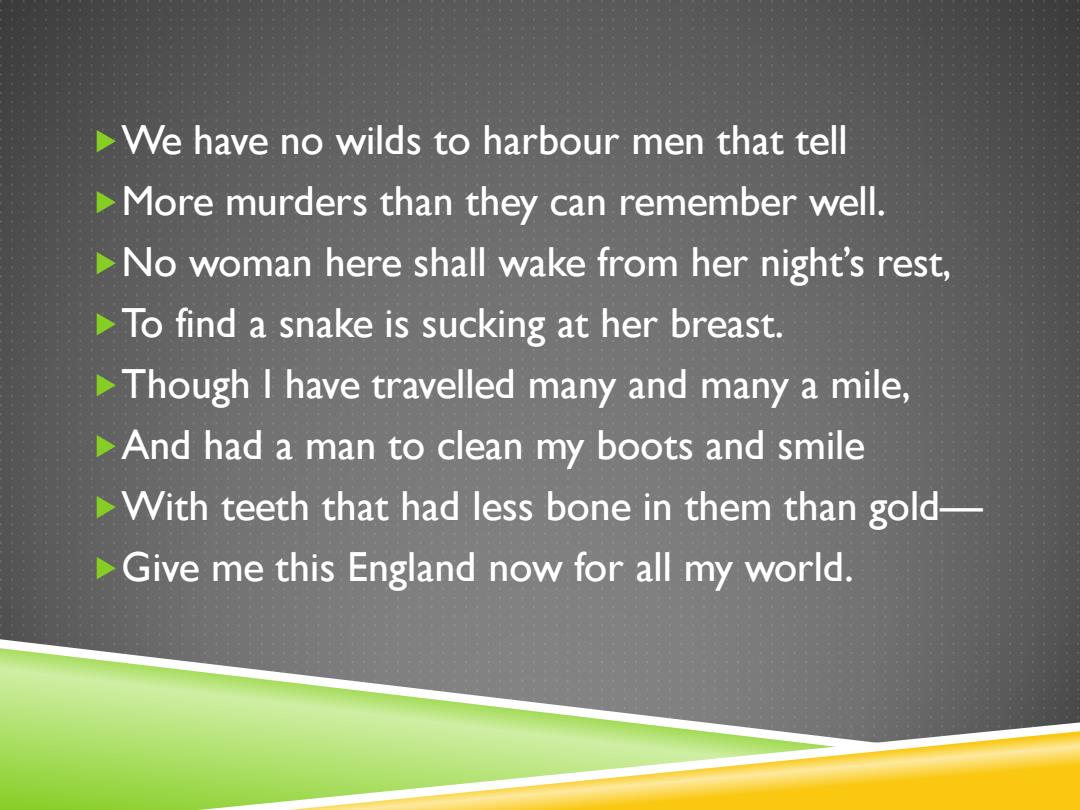
We have no wilds to harbour men that tell More murders than they can remember well. No woman here shall wake from her night's rest, To find a snake is sucking at her breast. Though I have travelled many and many a mile, And had a man to clean my boots and smile With teeth that had less bone in them than gold- Give me this England now for all my world
We have no wilds to harbour men that tell More murders than they can remember well. No woman here shall wake from her night’s rest, To find a snake is sucking at her breast. Though I have travelled many and many a mile, And had a man to clean my boots and smile With teeth that had less bone in them than gold— Give me this England now for all my world
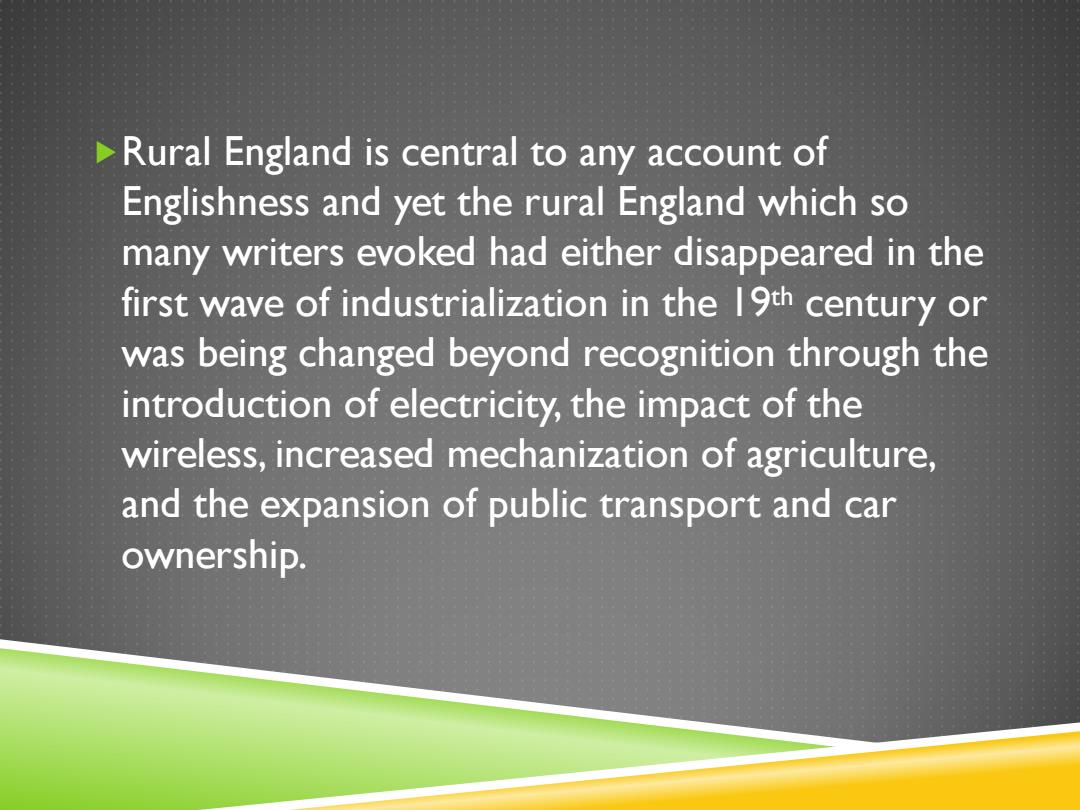
Rural England is central to any account of Englishness and yet the rural England which so many writers evoked had either disappeared in the first wave of industrialization in the 19th century or was being changed beyond recognition through the introduction of electricity,the impact of the wireless,increased mechanization of agriculture, and the expansion of public transport and car ownership
Rural England is central to any account of Englishness and yet the rural England which so many writers evoked had either disappeared in the first wave of industrialization in the 19 th century or was being changed beyond recognition through the introduction of electricity, the impact of the wireless, increased mechanization of agriculture, and the expansion of public transport and car ownership
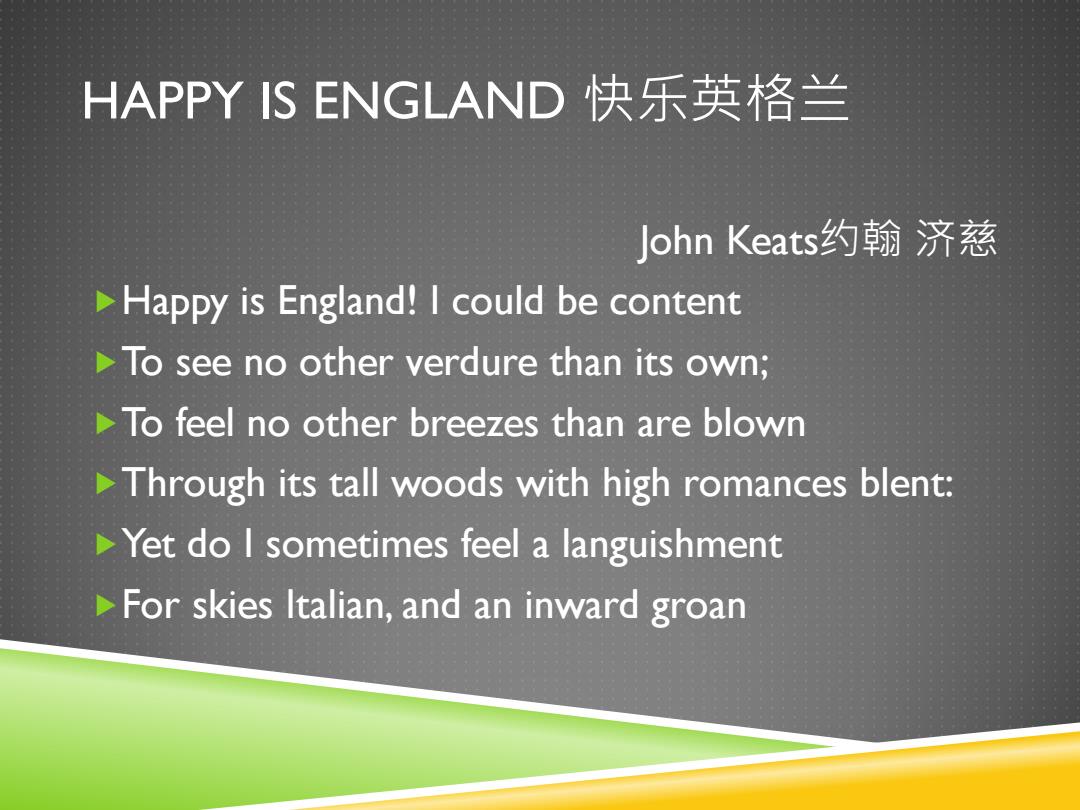
HAPPY IS ENGLAND快乐英格兰 John Keats约輸济慈 Happy is England!I could be content To see no other verdure than its own; To feel no other breezes than are blown Through its tall woods with high romances blent: Yet do I sometimes feel a languishment For skies Italian,and an inward groan
HAPPY IS ENGLAND 快乐英格兰 John Keats约翰 济慈 Happy is England! I could be content To see no other verdure than its own; To feel no other breezes than are blown Through its tall woods with high romances blent: Yet do I sometimes feel a languishment For skies Italian, and an inward groan
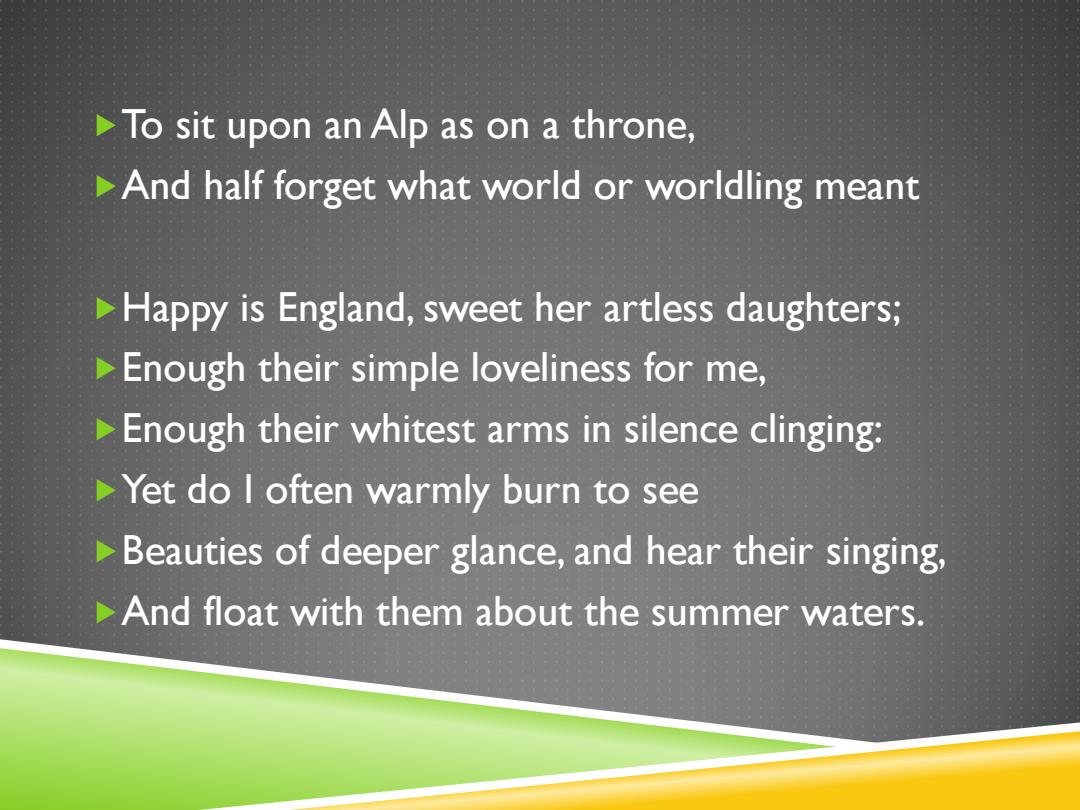
To sit upon an Alp as on a throne, And half forget what world or worldling meant Happy is England,sweet her artless daughters; Enough their simple loveliness for me, Enough their whitest arms in silence clinging: Yet do I often warmly burn to see Beauties of deeper glance,and hear their singing, And float with them about the summer waters
To sit upon an Alp as on a throne, And half forget what world or worldling meant Happy is England,sweet her artless daughters; Enough their simple loveliness for me, Enough their whitest arms in silence clinging: Yet do I often warmly burn to see Beauties of deeper glance, and hear their singing, And float with them about the summer waters

>快乐英格兰!意足我心满, >问君何处见?苍翠连成片; >问君何处有?微风吹绵绵 >穿过高树林,奇景何浪漫: >意国天空下,伤感总难免, 纵能登王位,端坐高山巅, >终日惶惶然,内心在熬煎, >人情与世事,终会遗忘半
快乐英格兰!意足我心满, 问君何处见? 苍翠连成片; 问君何处有?微风吹绵绵 穿过高树林,奇景何浪漫: 意国天空下,伤感总难免, 纵能登王位,端坐高山巅, 终日惶惶然,内心在熬煎, 人情与世事,终会遗忘半